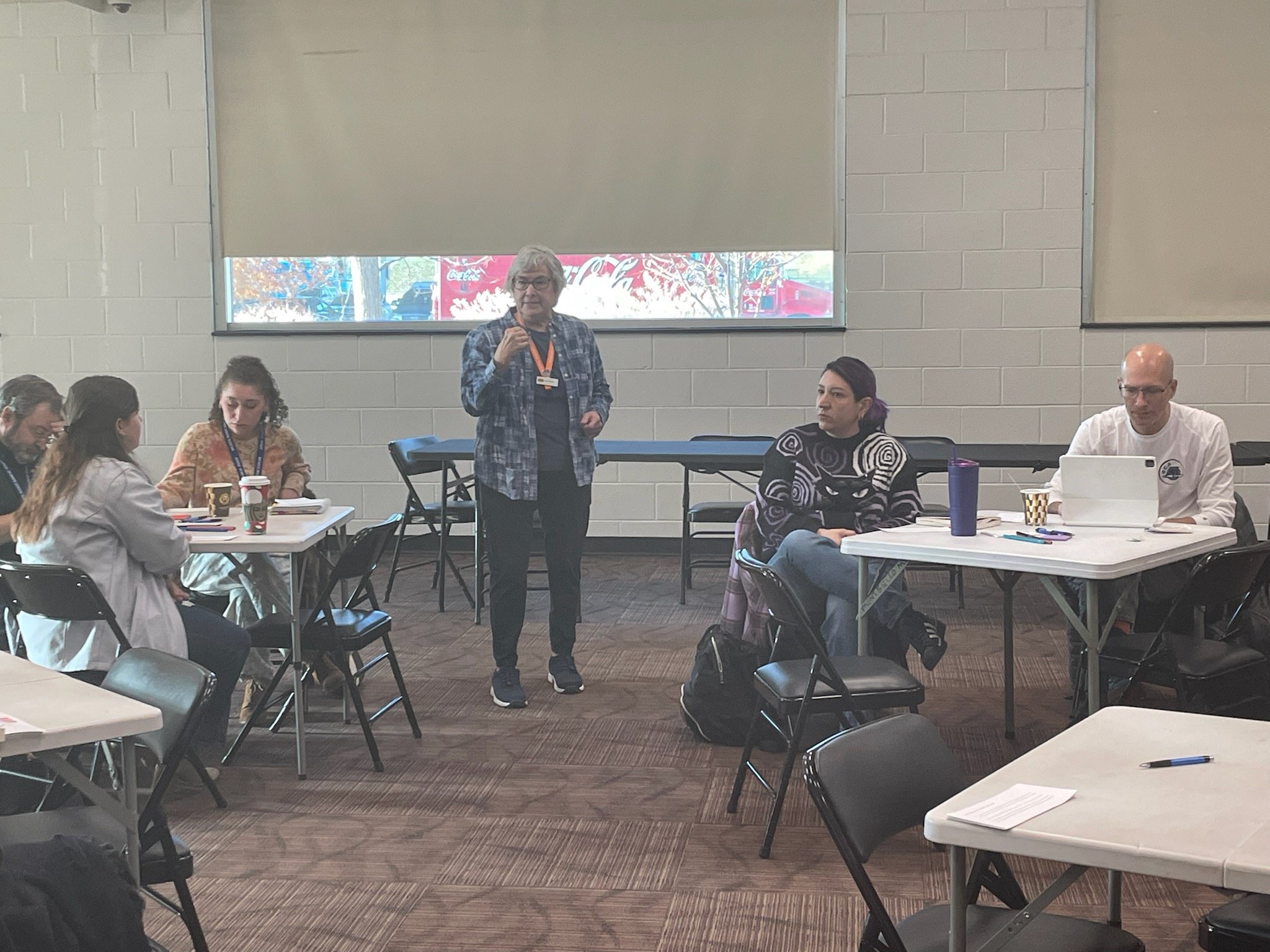November Coffee and Conversation: Proactive Problem Solving
DAA Collective’s Coffee and Conversation
November 20th, 2024
Proactive Problem Solving
Led and facilitated by Jami Powell
Bank of Knowledge: Share a success and what are YOU doing to make it happen?
Creating engaging and entertaining space and teaching styles with youth. Ability to “sell” the activity. (Relationships!)
Youth understand the “why” and have a strong incentive to complete the project/activity
Put effort and care into the youth you work with--Relationships!
Adult presence---how they show up into the space
Authenticity of adults
Structure and Scheduling (Planning!)
Be the resource for the organization and create a structure to take care of people (e.g., plan breaks for staff, etc.)
Don’t be afraid to fail and try new things
Have a process to see/observe where things are “falling” and create structure to take care of people
Utilize youth voice and input for success. Create an intentional, authentic process for youth to share what they want/need and are interested in. Embed it into the culture---space for youth to advocate for themselves
Everything is rooted in RELATIONSHIP, PLANNING and PRESENCE (foundation for DAA’s professional learning series for afterschool professionals)
Ask Community what they need/want--create process that is collaborative, cohesive and wired into how you plan and deliver programs
How can orgs solicit community feedback that is helpful, tangible and useful?
Be proactive and consider how often you are asking for it
Be specific in what you are asking
Cultivate relationships along the way
Create environments that naturally collects feedback regularly (surveys, in-the-moment questions, etc.)
Lead with love…this is human to human work. Model that you take in and take action on feedback given; create a true community process
What is the structure to be PROACTIVE?
How do you ensure you are being proactive?
Use consistent communication/planning apps
Structured self-reflection practices that are consistent and timely. Have a structure to capture notes and use them to reflect and improve
Schedule specific meetings to engage in improvement process. Add program improvement consistently to appropriate agendas
Transparent communication practices with wider staff
Leaders have scheduled “office hours” with an open door policy
Before and After class/group check ins
Personal and team reflection process and structure (with accountability structures built in)
Community building with team (e.g, plan outside the office, do fun activities together, etc.)
Accountability plan for growth and deliverables
Reflection on what we are seeing (and not seeing)
Have multiple achievable goals where incremental progress can be seen and celebrated (e.g., not just winning a soccer game, but small improvements, etc.)
Inventory of skill development needed to achieve goals (and a plan to develop them)
Intentional structures and process to celebrate each other!
CHALLENGES
STAFFING (retaining, empowering and setting goals for part-time staff, time for consistent training and development)
Identify bottleneck: problem solve with the staff
Empower staff by creating collaborative leadership and starting with their ideas (not the leader’s) first
Staff newsletter to keep them engaged and informed
Can’t get all staff together in the same room due to schedules
Try Zoom or What’s App meetings/communication
Work outside normal hours and provide PTO when possible and/or extra duty pay
Create “accountability pairs”to share information with each other when one isn’t in a meeting, etc.
Utilize “informal” meeting spaces
YOUTH ENGAGEMENT
Show up and be present. Choose the kind of energy you bring into the space
Provide voice and choice
Create culture of feedback from youth
Visually represent youth achievements when possible
CHANGE IN LEADERSHIP AND PARTNERS AND SUSTAINABLE FUNDING
Diversify funding sources
Cultivate champions of your organization in the community (they may write a check one day!)
Storytelling--what are your powerful impact stories?
Document processes for when new leadership arrive
Staff surveys of satisfaction (what are the retention factors?)
Network with other organizations and community to deepen connection
Question is looming about what is coming for OST orgs with the new administrations
DAA has it’s ear to the ground locally and nationally and will keep orgs apprised and advocate as needed



